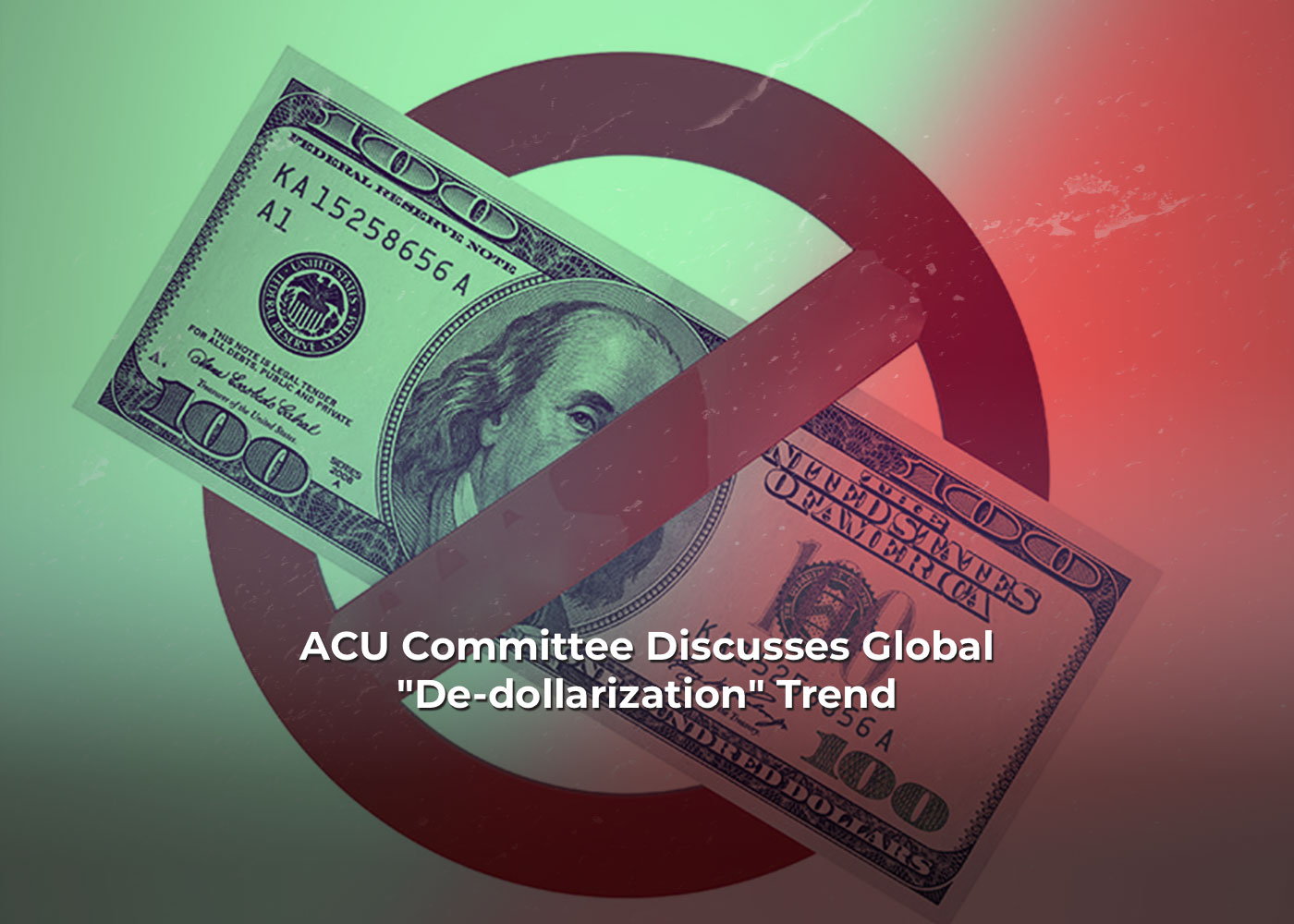ACU Committee Discusses Global “De-dollarization” Trend
Representatives from various central banks, including Iran, Bangladesh, Bhutan, Maldives, Nepal, Pakistan and Sri Lanka, gathered for the ACU committee meeting to discuss the global trend of gradual "de-dollarization ." The Deputy Prime Minister of Iran, Mohammad Mokhber emphasized that de-dollarization is no longer a voluntary choice but an inevitable response to the militarization of the dollar .

Representatives from various central banks, including Iran, Bangladesh, Bhutan, Maldives, Nepal, Pakistan and Sri Lanka, gathered for the ACU committee meeting to discuss the global trend of gradual “de-dollarization .” The Deputy Prime Minister of Iran, Mohammad Mokhber emphasized that de-dollarization is no longer a voluntary choice but an inevitable response to the militarization of the dollar . This sentiment is particularly significant coming from Iran which is a country subjected to American economic sanctions for several decades .
Global Efforts to Reduce Dollar Dependence with De-dollarization
The discussion highlighted that the de-dollarization trend is not confined to specific regions but has global implications . Mohammad Mokhber noted the substantial efforts being made in various parts of the world to reduce reliance on the dollar . Countries present at the meeting along with representatives from Russia, Belarus and Afghanistan have experienced limitations on their access to US-originating economic systems including the dollar . The conflict in Ukraine further emphasized the United States’ influence which prompted nations worldwide to express their desire to distance themselves from the dollar .
Calls for Common Currencies and Reduced Exposure
The BRICS nations (Brazil, Russia, India, China, South Africa) recently renewed their efforts to establish a common currency that can challenge the dominance of the dollar . Similarly countries in Southeast Asia (ASEAN) expressed their intent to limit exposure to the dollar and euro as a part of de-dollarization . The hegemony of the dollar has faced increasing scrutiny as its strength wanes . The United States grappling with a new debt crisis has seen the dollar lose its appeal while economies of scale in other parts of the world are seizing the opportunity for change .

A Profound Transformation Unfolding
The recent challenges to the dollar’s dominance reflect a profound transformation taking place in the global financial landscape . The weakened state of the US currency combined with the readiness of economies of scale to assert themselves has called into question the hegemony of the dollar . Central banks including the Federal Reserve and the European Central Bank have had to inject liquidity to support the dollar amidst the ongoing debt crisis . As the world shifts away from dollar-centric systems a significant shift is underway that may reshape the international financial order .




